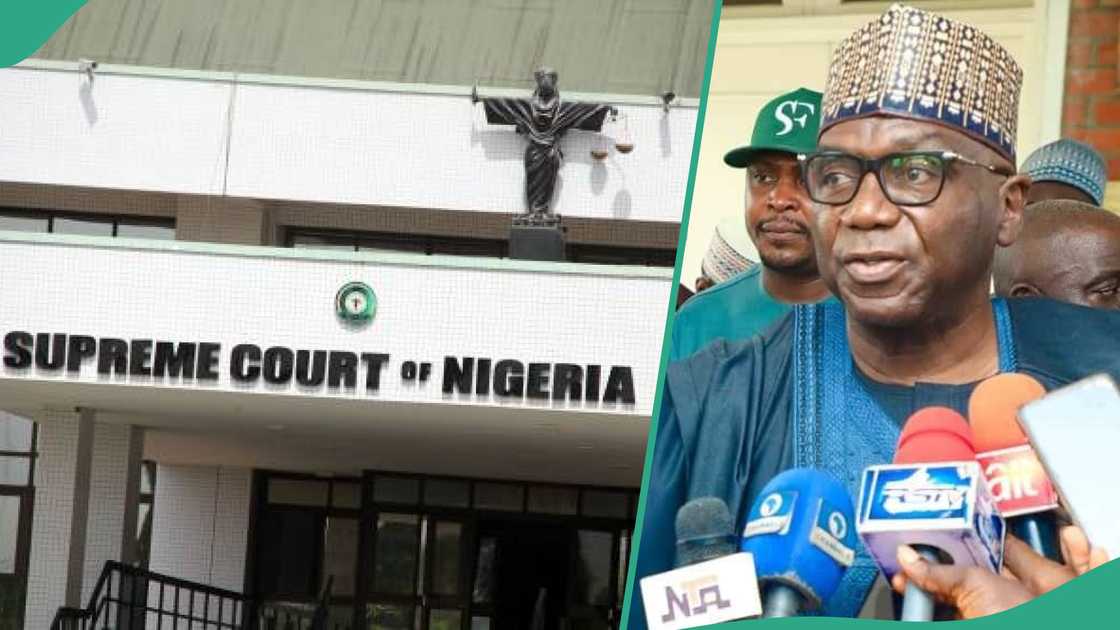- The Supreme Court has said that the local government chairmen's tenure lasts every four years like the presidents and governors
- Justice Mohammed Garba of the apex court gave the ruling in a judgment on local government autonomy delivered on May 11, 2024
- The court ruled that it is illegal for the states to control the funds of local governments as it undermines their statutory functions
PAY ATTENTION: Follow our WhatsApp channel to never miss out on the news that matters to you!
The Supreme Court of Nigeria has delivered a landmark judgment on local government autonomy, ordering that the four-year tenure of local government executives be extended to all local government chairmen across the country.
The judgment, delivered by Justice Mohammed Garba and six others on May 11, 2024, aims to address the challenges faced by local government councils in exercising their constitutional powers and performing their statutory functions.

Source: Twitter
States illegally control LG funds
According to Justice Garba, some states have illegally controlled the funds of local governments, making them unable to function effectively.
PAY ATTENTION: Сheck out news that is picked exactly for YOU ➡️ find the “Recommended for you” block on the home page and enjoy!
Local government areas are constitutionally recognized as the third tier of government in the Federation, and the Constitution guarantees their political and financial independence.
The Constitution provides for the existence of 768 local government areas in Nigeria, with Section 3(6) specifying their number.
Some states don't conduct LG poll
However, some states have failed to conduct elections for local government councils as required by law. The judgment extends the tenure of local government councils for periods not exceeding six months, citing Section 135(3) of the Constitution.
This extension is meant to prevent the illegal termination of the electorate's mandate, which occurs when the tenure of a local government council is truncated.
The judgment emphasizes the doctrine of separation of powers, highlighting the Legislature's duty to make laws and the judiciary's role in interpreting laws to achieve their intended purpose.
Source: Legit.ng
















 English (US) ·
English (US) ·